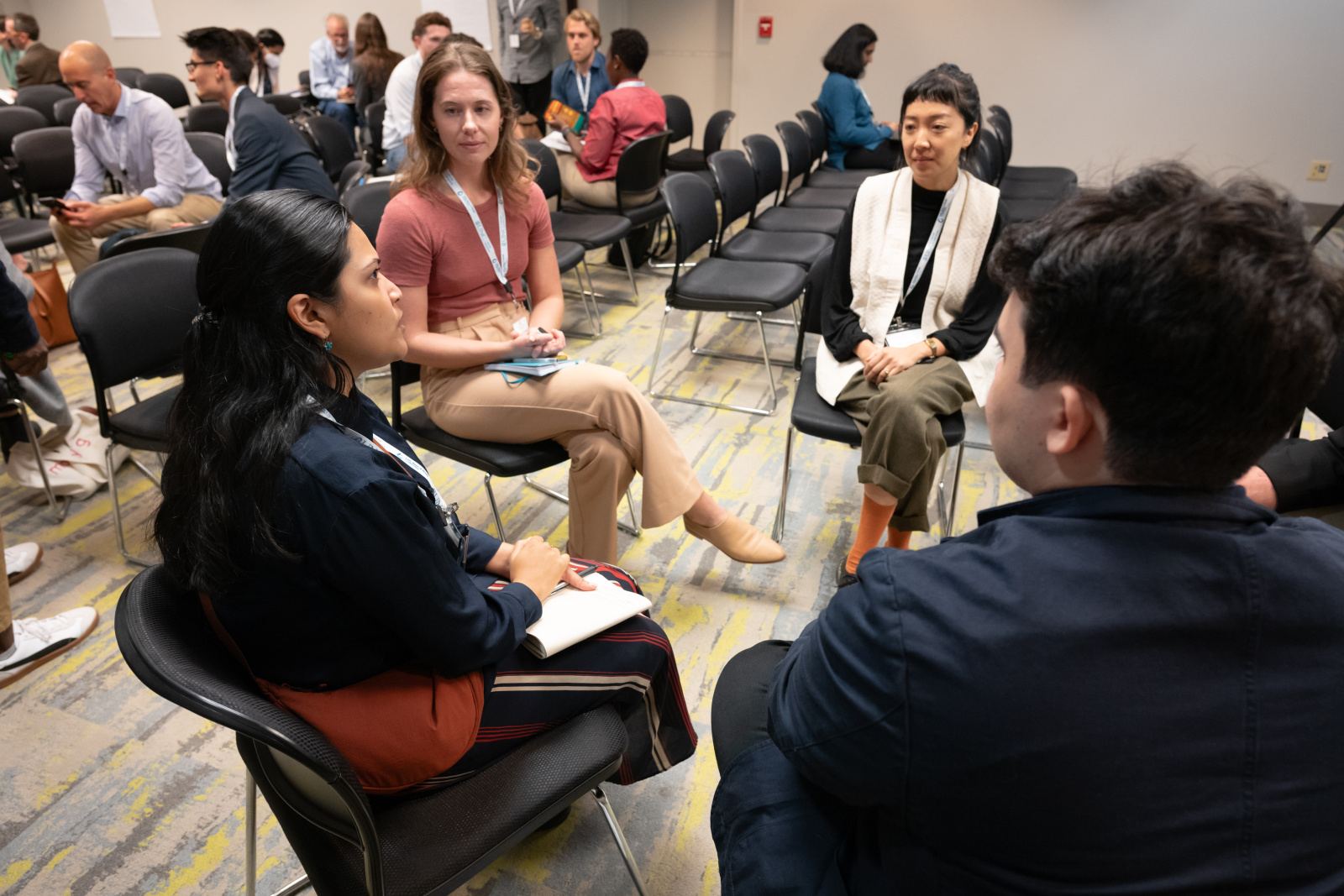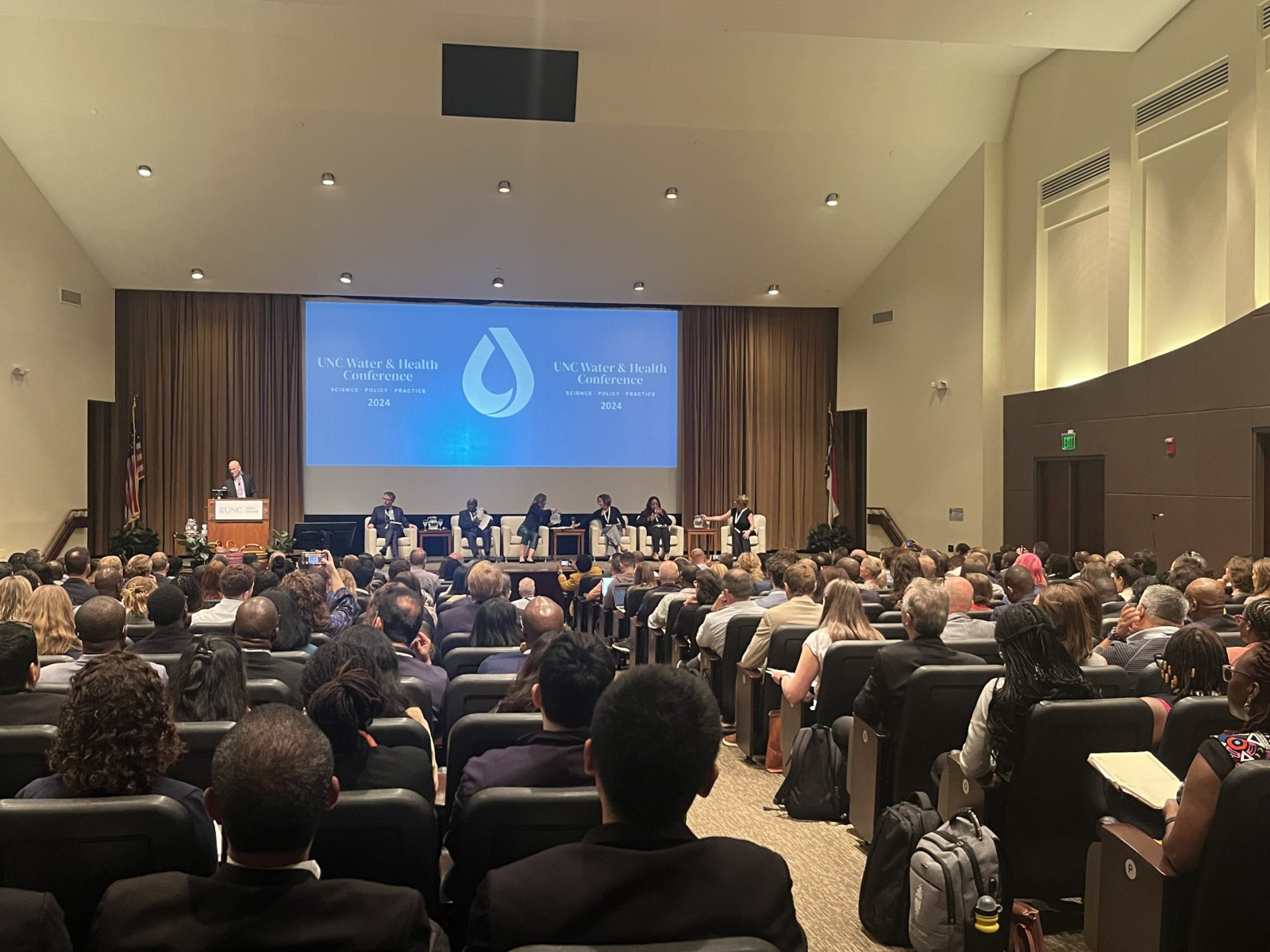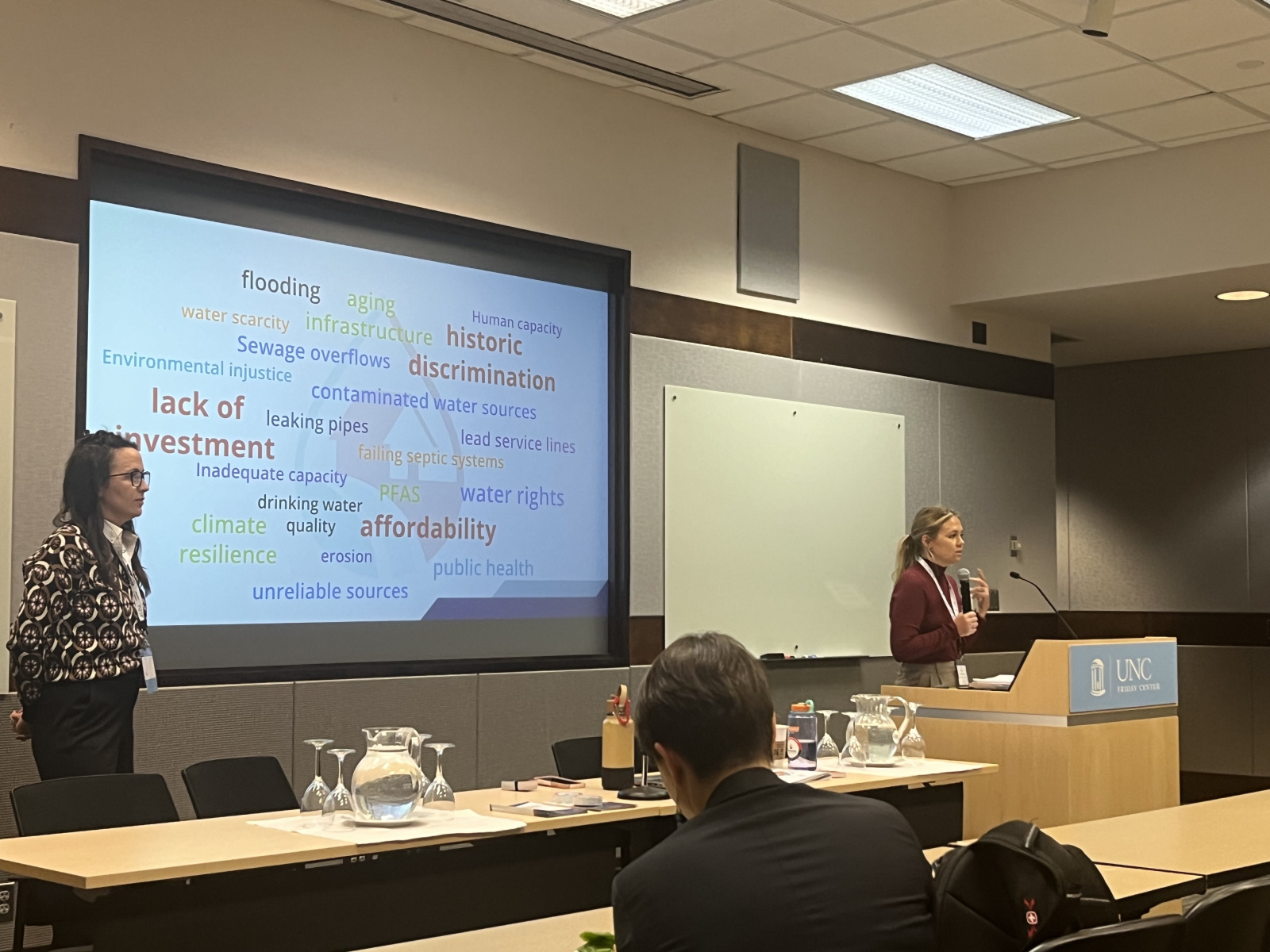News MIT DUSP student attends UNC Water and Health Conference
Mrinalini Penumaka, a PhD student in the Department of Urban Studies and Planning, gained insight on how the water, sanitation and hygiene (WaSH) sector will navigate impacts of the climate crisis.
Avery Plachcinski Abdul Latif Jameel Water and Food Systems Lab November 6, 2024

Workshop discussion with researchers and practitioners on missing social and economic dimensions in measurements of intermittency and predictability in household piped water supply
J-WAFS travel grants allow MIT graduate students to attend select international water conferences to further their professional development for careers in the water sector. The grants are supported by gifts to J-WAFS from Xylem Inc. and GoAigua, both J-WAFS Research Affiliates and water technology companies. Earlier this month, Mrinalini Penumaka, a PhD student in MIT’s Department of Urban Studies and Planning, received a J-WAFS travel grant to attend the 2024 UNC Water and Health Conference. The conference convened policymakers, practitioners, and researchers to discuss new and existing strategies to ensure safe, affordable, and sustainable water, sanitation, and hygiene (WaSH) services.
The conference was pertinent to Mrin’s research, which examines how climate change impacts infrastructure development and service provisioning, specifically in the water and sanitation sector in rapidly urbanizing cities in South Asia and southern Africa. Her dissertation studies the governance of urban transitions and decarbonization in South Africa’s water and energy sectors amidst deepening inequality and poverty.

Conference attendees take part in the opening plenary session at the UNC Water and Health Conference
Mrin reported back from the conference that the event kicked off with an opening plenary, titled “WaSH in 2050: What Does the Future Hold?” This session set the tone by providing insights into the sectoral changes needed to build climate resilience in WaSH infrastructure systems. It featured insights from academics and policymakers at the World Health Organization, World Bank, and the Institutional Care Directorate of the Ghana Health Service on climate resilience for the WASH sector. The first day highlighted the importance of studying water utility reforms, including decarbonization, drought response, and tariff design. Mrin reflected on the sessions, stating: “I see a clear need to carry out research that informs the governance of climate resilience in the WaSH sector and in the context of urbanization.”
Mrin also took part in a session called “Walking the Talk: How Countries Are Advancing Regulation of Sanitation Services,” which focused on Uganda’s implementation of spatial mapping and real-time tracking tools for monitoring sanitation services. She gained valuable insights into how data-driven approaches can enhance transparency, service delivery, and accountability for WaSH services in the Global South. The discussion offered practical perspectives on designing resilient and climate-responsive WaSH infrastructure systems. Mrin noted that this case study deepened her understanding of effective water management and pushed her to consider partnerships with technology providers and civil society organizations for future water management initiatives.

A speaker references a word cloud illustrating water-related challenges and barriers in the WaSH sector
She also gleaned knowledge from the “WaSH Services Beyond Centralized Systems” session, which explored decentralized water provisions in New Mexico, USA. The session highlighted the importance of utilities operating efficiently and maintaining financial viability, especially in relation to climate adaptation. She also had the opportunity to engage with representatives from community-based organizations focused on supporting decentralized water utilities in rural areas. These discussions highlighted the value of local partnerships and effective community engagement strategies in underserved regions, which are crucial for Mrin’s work on developing equitable water infrastructure systems responsive to climate change.
After attending the conference, Mrin returned to MIT campus equipped with new connections and insights from the UNC Water and Health Conference. Through seminars, workshops, panels, and discussions with water sector representatives, she gained valuable knowledge that will shape future academic and professional endeavors. “The conference provided a deeper understanding of the internal challenges WaSH faces in building climate resilience and underscored the need for cross-sectoral strategies. I am grateful to J-WAFS, Xylem, and GoAigua for their support, which enabled my participation and has enriched my research agenda on climate change and infrastructure systems,” says Mrin.